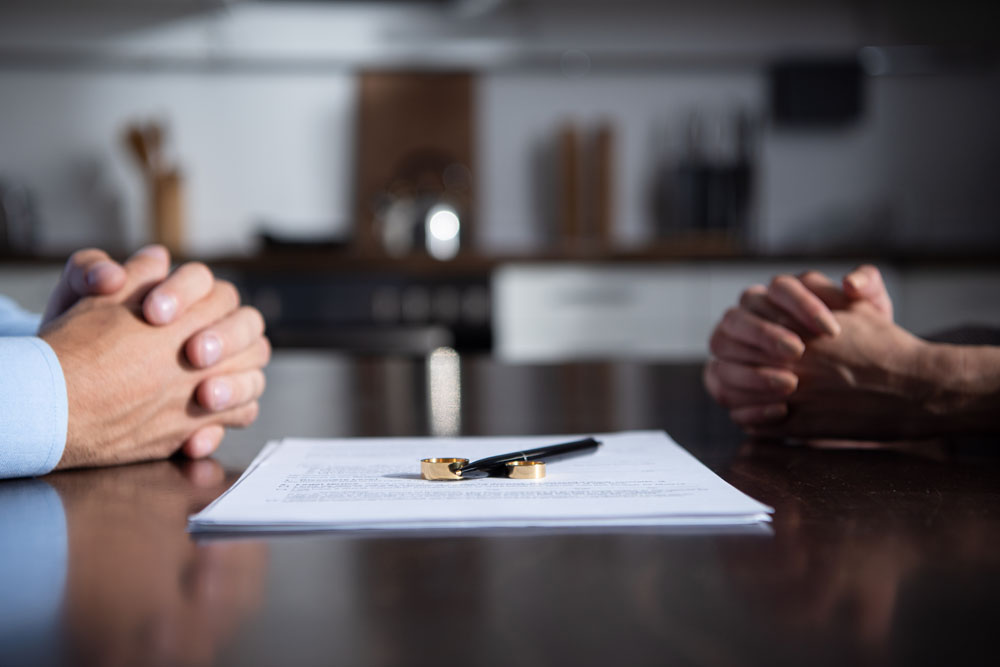Divorce is a life-changing event, and while the emotional impact is often the most immediate concern, financial matters; including pensions, should not be overlooked. Pensions are among the largest assets in many marriages, yet they can be complex to divide fairly. Understanding divorce and pensions, and how they factor into a divorce settlement is key to ensuring long-term financial security for both parties.
What happens to pensions in a divorce? Understanding divorce and pensions
Pensions are considered along with other financial assets during a divorce. This means that the way pensions are divided will be decided by the courts on a case-by-case basis, with consideration of factors such as the length of the marriage and the financial needs and responsibilities of each party.
In England and Wales, pensions are treated as part of the matrimonial assets, meaning they must be disclosed and considered in any financial settlement. This applies regardless of whose name the pension is in. So you must understand your divorce and pensions, and their impact on your finances..
Determining the true value of a party’s pension assets can be very difficult, especially when a Defined Benefit scheme is involved (such as the NHS, Armed Forces, Civil Service and Final Salary schemes). While a scheme provider will produce a Cash Equivalent Transfer Value (CETV), which represents the lump sum value of the pension were it to be transferred to another scheme; practice is not universal meaning different schemes use different assumptions. Getting professional advice in this scenario is essential
Divorce and pensions, how are split in England and Wales?
There are three ways pensions can be dealt with in a divorce settlement:
1. Pension Sharing
This is the most direct, and commonly used, method where a percentage of one person’s pension is legally transferred to the other. The receiving party can place this into a new or existing pension scheme in their own name. Pension sharing provides a clean break, allowing both individuals to plan independently for retirement.
2. Pension Attachment (Earmarking)
Instead of splitting the pension, an attachment order allows one spouse to receive a share of the pension income when the other starts drawing their pension. However, this does not provide a clean break, as the receiving spouse remains financially tied to their ex. Additionally, if the pension holder passes away before accessing their pension, the ex-spouse may receive nothing. For these reasons, attachment orders are generally not a preferred option for splitting pensions.
3. Pension Offsetting
Rather than splitting the pension itself, one party may retain their full pension while the other receives a larger share of other assets, such as property or savings. This approach works well if one party wishes to keep their pension intact while compensating the other through alternative means. However, if this approach is taken it is vital to ensure the value of the pension assets has been correctly calculated so that the appropriate offset can be made. Most complaints relating to divorce and pensions arise from this not being done properly.

How is pension split in divorce?
If a financial settlement was not formalised through a legally binding consent order, an ex-spouse could claim a share of a pension years after the divorce. Courts have the discretion to consider financial claims at any point unless a clean break order is granted.
The State Pension and Divorce
The basic State Pension cannot be shared upon divorce; however, additional State Pension elements accrued before April 2016 may be considered in the financial settlement. If one spouse has a significantly lower State Pension entitlement, they may be able to benefit from their ex-spouse’s National Insurance record in certain cases.
What Happens if One of You Remarries?
If a pension was split using a pension sharing order, the arrangement remains in place even if either party remarries. However, pension attachment orders often cease if the receiving party remarries, meaning they will their entitlement to future pension payments.
Divorce and pensions, what you need to understand
While it is natural to want to protect pension savings, courts prioritise a fair division of assets. Attempting to shield a pension from a settlement may result in an unfair outcome. Seeking expert advice on pension valuation and division can help ensure a fair arrangement that considers both immediate needs and future financial stability.
The Importance of Legal and Financial Advice with divorce and pensions
Pension arrangements can be complicated, and mistakes in valuation or division can be costly. It is highly recommended that you consult a pension divorce expert and a specialist family solicitor. They can provide tailored advice based on the type of pension involved and ensure that any division is legally enforceable and financially sound.
Why Vaitilingam Kay is the Firm to Speak to if You Are Concerned About Pensions and Divorce
We offer bespoke advice for a secure financial future and specialise in divorce and pensions.
Whether it’s dividing assets, negotiating settlements, or managing high-net-worth cases, our meticulous approach ensures that your financial interests are preserved and that you secure a stable future.
Financial matters in family law can be complex, especially when significant assets, businesses, or international considerations are involved. We offer clear and strategic advice to help you navigate asset division, maintenance arrangements, and financial settlements. Our goal is to ensure your financial security and protect your long-term interests.
Divorce and pensions require careful planning and professional guidance. Whether through pension sharing, offsetting, or an attachment order, finding the right approach is crucial for long-term financial security. Ensuring that pensions are properly accounted for and divided fairly can make a significant difference in securing a stable future post-divorce.
Book an appointment with us Here
We are one of the leading firms in London, ranked by the Legal 500.